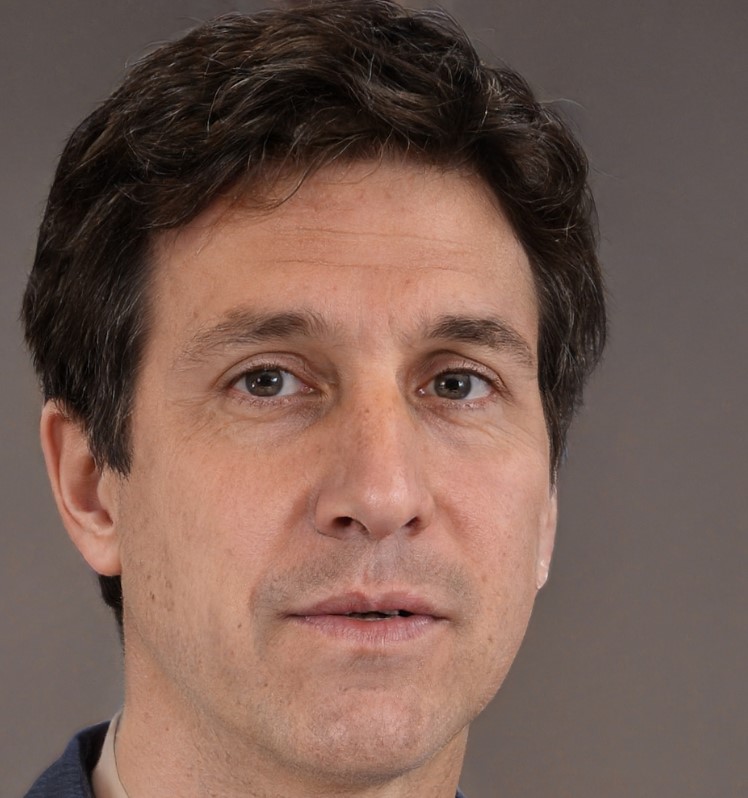Two people can both be called “Doctor,” yet their worlds could not be further apart.
A medical doctor, known as an MD, focuses on diagnosing and treating patients through clinical practice.
The goal centers on improving health through direct care. A PhD, on the other hand, represents a research doctorate that aims to create new knowledge in a specific field.
Training for a PhD builds expertise in academic research and theory. Both paths require years of study, but the outcomes differ.
An MD leads toward a medical career, while a PhD often opens doors to research or academic teaching.
Key Difference Between a Doctor and a PhD

| Aspect | MD (Doctor of Medicine) | PhD (Doctor of Philosophy) |
| Focus | Clinical practice and patient care | Academic research and knowledge creation |
| Primary Goal | Diagnose, treat, and prevent illness | Conduct original research and expand knowledge |
| Environment | Hospitals, clinics, and health centers | Universities, laboratories, and research institutes |
| Duration | 7 to 10 years, including residency | 4 to 7 years, including dissertation |
| Outcome | Medical license and clinical expertise | Research skills and academic contribution |
| Career Path | Physician, surgeon, medical specialist | Researcher, professor, policy analyst |
| Evaluation | Exams, clinical rotations, and residencies | Research proposal, publications, and dissertation defense |
A clear contrast exists between the two paths. An MD emphasizes direct interaction with patients through diagnosis and treatment in real-world medical settings.
Clinical knowledge forms the foundation of success for a medical doctor. Each stage of training leads toward medical practice and real outcomes in patient care.
A PhD program instead builds intellectual specialization through original research. The aim is to produce new insights, theories, or innovations within a chosen discipline.
Unlike clinical education, a PhD experience unfolds in academic environments filled with research design, data collection, and peer review.
An MD contributes to public health through treatment and medical service, while a PhD contributes to global knowledge through inquiry and publication.
Both carry prestige, but the purpose and nature of their expertise separate them.
Fields of Doctoral Study
Doctoral degrees exist across academic and professional areas, each designed for a specific goal. Some focus on creating new knowledge through research, while others prepare professionals to apply advanced skills in real settings. The field of study determines both the learning process and the type of career that follows.

Research-Oriented Doctorates
PhD programs train students to design studies, analyze data, and share discoveries that advance human knowledge.
Each discipline builds expertise through evidence and research. Common areas include:
- Education: Focuses on teaching methods, learning theories, and educational policy. Graduates often work as professors or curriculum researchers.
- Psychology: Studies mental processes and behavior using experiments and data analysis.
- Science and Engineering: Includes physics, chemistry, biology, and mechanical or electrical engineering, focusing on experiments and technological innovation.
- Humanities and Social Sciences: Covers literature, history, sociology, and anthropology, analyzing human experience and cultural development.
PhD programs aim to develop critical thinkers who expand academic understanding and influence research worldwide.
Applied and Professional Doctorates
Applied doctorates combine theory with practice to solve real problems in industries such as health, business, and law.
Examples include:
- Medicine (MD): Prepares students to diagnose and treat patients through intensive clinical training.
- Psychology (PsyD): Focuses on applying psychological science in therapy, counseling, and organizational work.
- Law (JD): Provides the foundation for practicing attorneys and legal analysts.
- Business Administration (DBA): Teaches executive leadership, strategy, and organizational management. Many universities now offer the DBA degree online, giving professionals access to high-level education without leaving their careers.
The Role and Purpose of a PhD
A PhD, or Doctor of Philosophy, stands as the highest academic qualification in most fields. It is designed to create experts who add new ideas, theories, and research findings to human knowledge.
Each PhD program focuses on one central research question that requires original thought and clear evidence. The purpose of the PhD is not only to learn existing theories but to advance them through discovery and analysis.

Structure of a PhD Program
A PhD begins with several years of advanced coursework that builds a strong theoretical foundation. After passing qualifying exams, students move to the research phase, where they design and conduct a study under faculty guidance.
The final stage involves writing a dissertation that presents new findings and defends them before a committee.
Completion usually takes between four and seven years, depending on the field of study and the complexity of the research.
Focus on Research and Academic Contribution
The PhD centers on systematic research methods. Students learn to collect and interpret data, apply statistical tools, and present conclusions supported by evidence.
Each project must withstand academic review and often leads to published articles or conference presentations. The ultimate goal is to make a measurable contribution to the discipline.
Career Opportunities for PhD Graduates
PhD holders often continue into careers in academia, research institutes, or government organizations.
Many work as university professors, policy advisors, or data analysts. In recent years, industries such as technology, healthcare, and finance have also recognized the value of PhD-level research skills.
The ability to think critically, interpret complex data, and design solutions has turned the PhD into a credential that extends far beyond the classroom.
Academic vs Professional Outcomes
Each doctoral path serves a different purpose and attracts a specific kind of learner. A medical degree, such as an MD, develops practitioners who apply science to improve health. A PhD develops researchers who advance theory, test hypotheses, and produce new knowledge. Both require long preparation and discipline, yet they suit different strengths, goals, and personalities.
Who Should Pursue an MD

An MD suits individuals drawn to patient care and medical problem-solving. The study of medicine involves anatomy, physiology, pharmacology, and clinical practice. Students train to diagnose illness, interpret tests, prescribe treatment, and guide patients through recovery. A successful medical doctor must think clearly under pressure, make ethical decisions, and communicate with compassion.
Medical education combines classroom study with extensive hands-on training in hospitals and clinics. Each step builds toward professional licensure and a medical specialty. Those who pursue this path often value human interaction and the direct impact of improving lives through evidence-based treatment.
Who Should Pursue a PhD

A PhD suits individuals who have a deep interest in analysis, research, and discovery. The program develops independent thinkers who question established ideas and design studies to explore new concepts. Ideal candidates value evidence, accuracy, and logic, and they find purpose in solving unanswered questions that advance their field.
The PhD experience fits those who enjoy detailed investigation and long-term intellectual projects. It demands patience, curiosity, and a willingness to persist through complex research problems. Students learn to collect and evaluate data, write scholarly work, and contribute findings that influence policy, education, science, or culture.
A person who pursues a PhD often aims for an academic or research-based career. Many become professors, scientists, policy analysts, or consultants. The path offers fewer public moments than medicine but greater independence in thought and innovation. It appeals to those who seek depth of knowledge, value critical inquiry, and wish to leave a lasting mark on how the world understands a subject.
Frequently Asked Questions
Can someone hold both an MD and a PhD?
Yes. Some professionals complete both degrees to combine clinical practice with advanced research. MD–PhD programs, often offered by major universities, prepare physician-scientists who treat patients and conduct studies that advance medical science. These graduates work in academic hospitals, medical schools, and research institutions, bridging the gap between laboratory discovery and patient care.
Is a PhD considered higher than an MD?
No. Both represent terminal degrees, meaning they are the highest academic qualifications in their respective fields. An MD focuses on medical practice, while a PhD focuses on research and theory. Each requires years of advanced education, rigorous assessment, and professional dedication. One is not higher or lower; they simply serve different purposes.
Do MDs and PhDs earn the same salary?
No. Income levels differ based on specialization, location, and employment sector. In the United States, physicians often earn higher average salaries because of the nature of medical practice and its long training requirements. PhD salaries vary widely, ranging from academic positions with moderate pay to high-paying roles in industry, technology, and data science.
Can a PhD work in healthcare without being a doctor of medicine?
Yes. PhD holders in fields such as biology, public health, biochemistry, and psychology play key roles in medical research, policy design, and clinical trials. They do not treat patients but contribute through data analysis, laboratory studies, or healthcare innovation. Their work often supports the evidence that guides medical decisions.
Which degree offers greater career flexibility?
Each path provides unique forms of flexibility. An MD offers options in clinical specialties, hospital management, and medical education. A PhD allows transitions across academia, research, public policy, or private industry. The choice depends on personal goals: those who value direct patient interaction may prefer medicine, while those drawn to investigation and discovery may find fulfillment in research.
Bottom Line
Both the MD and the PhD represent the peak of advanced education, yet they follow entirely different routes toward excellence. The MD focuses on treating illness, improving patient health, and applying medical science in daily practice. The PhD focuses on building theories, conducting experiments, and creating new knowledge that shapes the future of science, education, and society.
Each path demands years of study, discipline, and personal commitment. A medical doctor must master precision under pressure, while a PhD must master patience through detailed research. One brings relief to patients; the other expands the boundaries of what humanity knows.
Choosing between them depends on personal goals. Those who want to heal and serve others through medicine will thrive in the MD path. Those who seek answers through research and wish to influence academic or scientific progress will find their purpose through a PhD.
Read Also: Difference Between EdD and PhD


